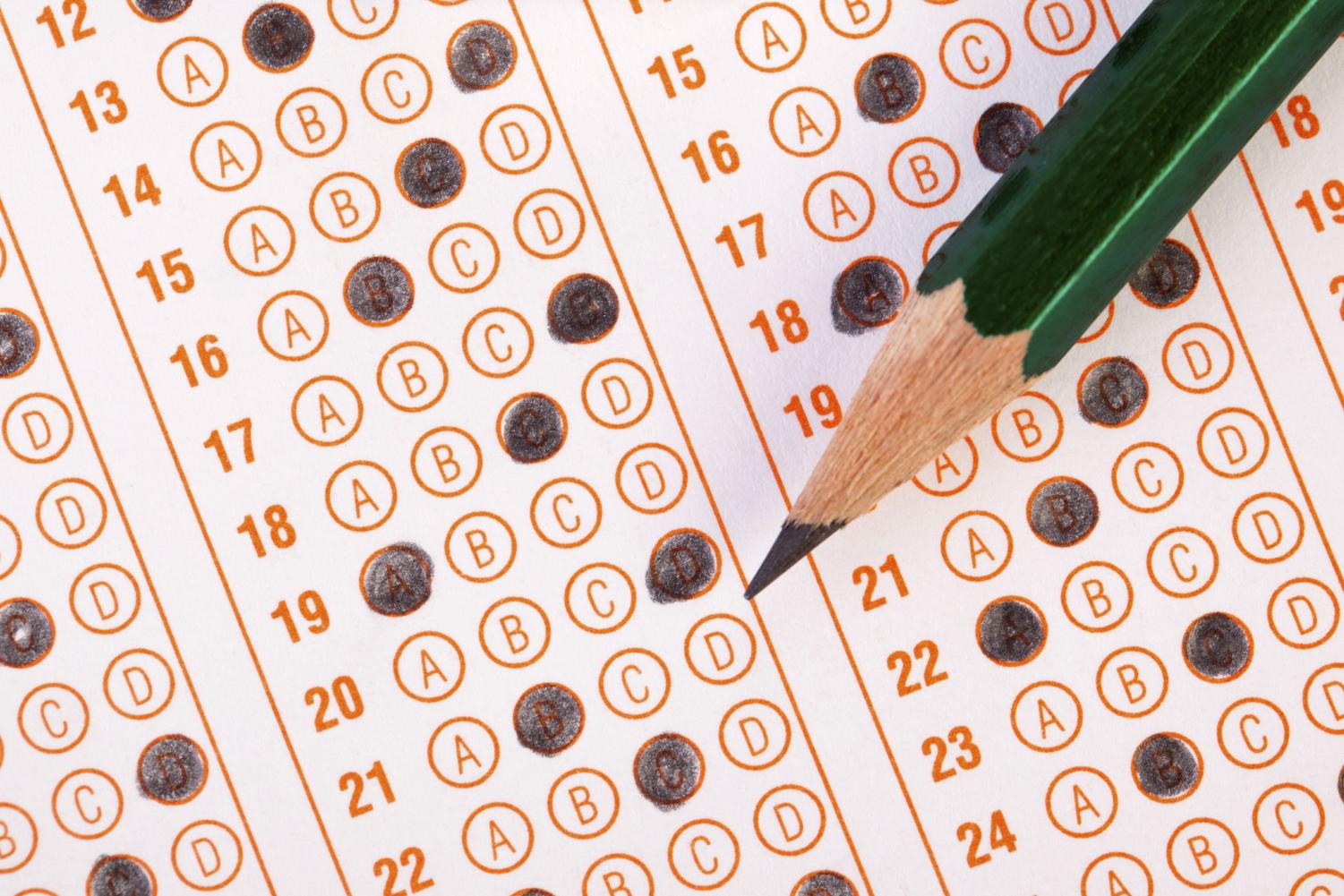Standardized Testing = Better Education?
SAT. ACT. Six letters that every high school student dreads. Standardized testing consists of sitting at a tiny desk and shading in ovals for over four hours. And better yet, after it gets scored, the mere numbers printed on the booklet will determine where the student will go to college. Every student is unique in their own way; their scores don’t define them, says every university ever. We all know that statement to be false. Universities want to be at the top of the national university ranking. Averaging the scores of all the incoming freshmen determines their rank, leading to the importance of high standardized test scores.
Before arguing whether or not standardized testing actually helps students with their education, the purpose of the test has to be discussed. SAT and ACT testing is enforced in order to judge which students excel at specific areas of learning, including math, English, and science. Supporters of standardized tests believe that the tests are reliable and objective measures of student achievement. Since each student is being tested on the same kind of questions in the same format, the scores are easy to compare. Without them, college admissions would have to rely on test scores graded by different teachers and schools, making it difficult to judge each student based on their grades.
Teacher-graded tests are inadequate alternatives to standardized tests since most teachers are not trained in testing and measurement. According to ProCon.org, research has shown that many teachers “consider non cognitive outcomes, including student class participation, perceived effort, progress over the period of the course, and comportment.” Although these aspects will affect the student’s progress in colleges, colleges do not look for these requirements when admitting students, thus making them irrelevant to subject-matter mastery. In addition, the SAT and the ACT are both multiple-choice tests given to machines to grade. In this case, they are not subject to biases.
However, critics of standardized testing believe that the tests are an unreliable measure of student achievement. A 2001 study by the Brookings Institution found that 50-80% of year-over-year test score improvements were temporary and “caused by fluctuations that had nothing to do with long-term changes in learning.” Students are different in the way they learn, and standardized test scores do not show that. For example, a student may be a great learner, but they need a significantly longer time to read passages and analyze questions. In this case, the student will run out of time and their scores would be lower than if they had all the time they needed.
In America, there is a significant population of people of color. According to a population survey in 2015, people of color make up 50.3% of the United States population. Latinos make up 25%, African Americans 12.7%, Asians 7.9 %. 3.7% of the population identify as multiracial. Most of them are multilingual, some of them learning English as a second, third, or even a fourth language.
Critics of standardized tests argue that the tests are unfair and discriminatory against non English speakers. They are forced to take tests in English that determines the rest of their life before they have even mastered the language. Between native English speakers and non native English speakers, non native English speakers are at a disadvantage. Not only do the standardized tests discriminate against non native English speakers, they also discriminate against students with special needs. They take the same tests as other children, but only receive few of the accommodations usually provided to them as part of their Individualized Education Plans (IEP). This also leaves them with a disadvantage compared to other students.
Although standardized testing has been around since the mid-1800s, the system is still rigged. Scores are an important part of college admittance, so we need to acknowledge people’s differences and allow an equal platform for everyone to get into college.
Cover image credit: https://www.theodysseyonline.com/rethinking-education-standardized-testing

